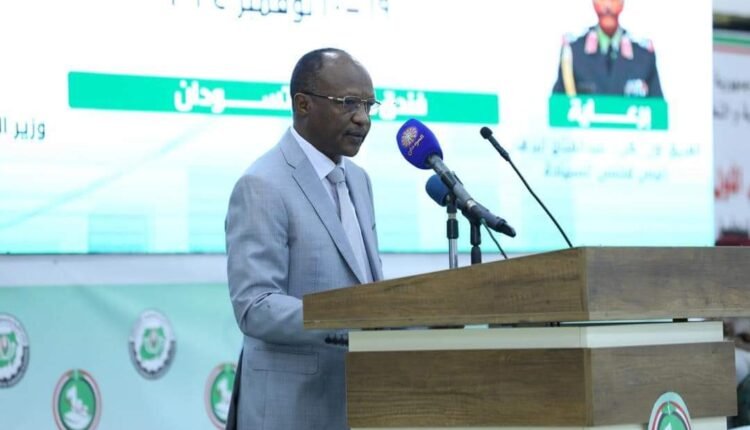Governor of Central Bank: Currency Replacement to Address Counterfeit Currency and Looting of Cash Reserves

Port Sudan – Sudanhorizon
The Governor of the Central Bank of Sudan, Burai Al-Sadiq, described the decision to replace the national currency as a necessary measure to address the negative impacts of counterfeit currency circulation and the looting of cash reserves.
Speaking at the opening session of the First Economic Conference to Tackle War Challenges, held Tuesday in Port Sudan, Al-Sadiq explained that the decision followed thorough studies and was implemented in early 2024. It involved full coordination with economic and security stakeholders under the direct supervision of the Transitional Sovereign Council to protect the national economy and restore trust in the banking system.
The governor highlighted the severe damage caused by the war initiated by the rebel Rapid Support Forces (RSF), which destroyed infrastructure and disrupted economic activities across vital sectors. This led to a decline in agricultural and industrial production, the shutdown of many establishments, and inflationary pressures that undermined the stability of the national currency.
Al-Sadiq noted that these challenges were exacerbated by widespread looting targeting bank headquarters and branches, including the Central Bank and Sudan’s Currency Printing Company. This directly impacted cash reserves and led to the proliferation of counterfeit currency.
To address these issues, the Central Bank has launched a series of policies to achieve monetary stability. These include:
Restricting Government Borrowing from the banking system.
Rationalizing Foreign Currency Use to Optimize Reserves.
Restoring damaged banking payment systems ensures the resumption of essential financial services.
The governor also revealed the establishment of a Strategic Commodities Portfolio with an initial capital of $1 billion. This initiative has helped stabilize the exchange rate and ensured the availability of essential goods through the official market rather than the parallel market.
Efforts to modernize banking infrastructure are ongoing, including restoring the National Switch System, which will reinstate banking services such as debit cards and point-of-sale transactions. Additionally, the Central Bank has reestablished the export and import system, improving coordination with ministries and institutions to ensure the continuity of export operations and mitigate associated risks.
Al-Sadiq affirmed that the Central Bank is updating its regulatory frameworks to align with international best practices and emphasized the importance of forging strategic partnerships with national and international entities to enhance the investment climate and support economic recovery efforts.
Shortlink: https://sudanhorizon.com/?p=2694

